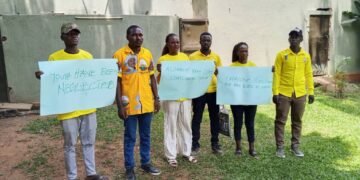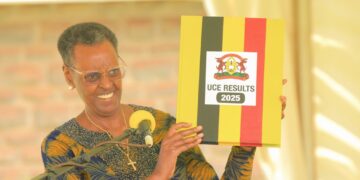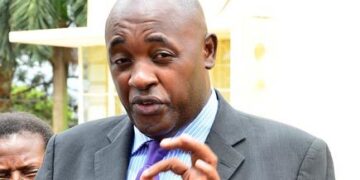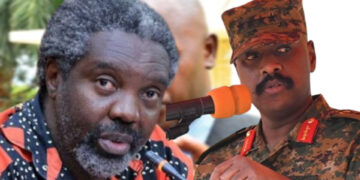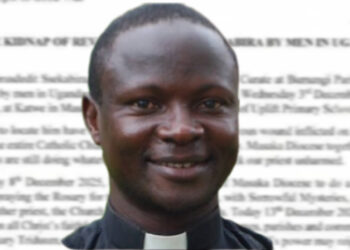PARROTS UG|POLITICAL DESK:
On Friday August 27, 2021, the offoce of the leader of opposition in the 11th parliament through their head, Hon Mathias Mpuuga presented to the nation and the world in particular a document containing proposal reforms that the shadow government (opposition) intend to depend on its legislation throughout this 5yrs term.
The first of its kind, sections of political and economic analysts, policy makers and some officials in the incimbent NRM have since given a bridal welcome to the legislative agenda.
Whereas the legislative agenda is pursued to be a child of the National Unity Platform – the largest opposition party in parliament, the LA documents ideologies from all the opposition political parties with legislation in the 11th parliament.
These includes; FDC, UPC, PPP, DP, JEEMA & NUP. The participation of all the opposition political parties and key stakeholders in the formulation of the legislative agenda gives the document a collection of ideas to ensure checks and balances not only in the operations of the government but also the opposition to ensure proper accountability and service delivery.
Its against this background that Parrots UG publishes to you an uncensored copy of the legislative agenda as launched on Friday August 27. Read document below or click here to read in pdf format.
THE OPPOSITION LEGISLATIVE AGENDA AUGUST 2021

Introduction
The Opposition in Parliament is charged with a broad and collective mandate of keeping government in check. To ably champion and execute this mandate, Article 82 A of the Constitution of the Republic of Uganda and Administration of Parliament (Amendment) Act (Section 6A and 6B) bestows leadership upon the National Unity Platform (NUP) and subsequently Leader of the Opposition.
It is against this background that key issues have been identified to inform our legislative aspiration of accountability and service to the citizenry. Ugandas politics has known the role of initiating legislative policy making mainly as a preserve of the Executive while the Opposition has mostly been associated with the intention to prevent rather than shape policy.
The social contract with the citizenry enjoins us to legislate not in our interest but the interest of our constituencies and the nation as a whole. This requires whenever possible seeking bipartisan support and consensus in pursuit of improved governance and service delivery.
Legislative Agenda
In the spirit of accountability and service, key legislative pursuits will be championed. They are anchored on the aspirations of the citizenry. These include electoral reforms, public order management, curbing of wasteful expenditure, improvement of service delivery and performance of Opposition Members. Each will be elaborated in turn and would require support across the aisle so as to realize the benefits of success. Our pursuits will not necessarily be based on scoreboard mentality or strike rate (number of proposals accepted) since such approach may negate the constructive outcomes that would accrue from the legislative pursuits. Rather, focus will be placed on raising issues that would otherwise be neglected and stimulate debate within public domain. This would enable the citizen have a say in the running of government and delivery of services.
Electoral Reforms
In 2014, the entire country was consulted on electoral reforms. It culminated into the development of Citizens Compact that detailed the citizens aspiration on free and fair aspirations. Unfortunately, when the reforms were presented in Parliament, they were underplayed by government in the guise of constituting a constitutional review commission. To date, the commission remains to be an aspiration of government.
Nonetheless, a Constitutional (Amendment) Bill 2019 that contained some of the proposed reforms was presented by Hon. Niwagaba Wilfred. While effort will be undertaken to pass the Bill, another private Members Bill will be developed to realize the aspirations that were not considered. These include registration of Ugandans in the Diaspora and prisons, competitive recruitment of leaders of constitutional bodies, fixing terms of office for commissioners in the Independent Electoral Commission, reduction of the size of Parliament, reduction of special interest groups, restrictions of supplementary expenditures during election periods, role of security organs in elections, relinquishing public assets during campaigns, media coverage of candidates and transmission of election results.
Relatedly, the country lacks a clearly defined transitional procedure for both leadership and operations of government. For instance, there is no defined time frames for end of Office holding. It is only presumed by virtue of actions such as swearing in and approval of appointments. Whereas under the Constitution as amended, an incumbent president is not supposed not qualified for election as president while in the office whose functions involve or are connected with the preparation or organisation of elections, in the previous elections we have seen the incumbent continuing to exercise powers of head of state, head of government, commander in chief (CIC) and chairperson of National Security Council to influence partisan deployment of the military during the elections. Ministers continue holding fort even amidst uncertainty on whether their actions during the transition amount to government endorsement or assurance. More still, handover is handled in discretional and courtesy mode. Based on the last general elections, constituting of cabinet took longer yet there were cabinet roles that needed to be executed such presentation of national budget. These gaps would be more pronounced not during transition between terms but governments.
Consequently, the Presidential Transition bill that was presented by Hon. Dr. Bayigga Michaël Lulume in 2014 will be reviewed with the intent of broadening its scope. Subsequently a holistic Bill that seeks to address transition management within entire government will be developed to ensconce an incumbent and his/her agent from elections management and organisation.
Another major electoral reform we shall pursue as a pre-condition to participating in future elections shall relate to key amendments to the Electoral Commission Act with a view of empowering it to play its constitutional mandate during the transition process; and empower it to have powers over an incumbent president.
To further guarantee the independence of the electoral commission, we shall pursue amendments that will ensure public selection of its members through a process initiated by the Judicial Service Commission. Uganda Law Reform Commission, Uganda Law Society and Law Development Centre, which are all statutory bodies with a mandate of advising government on areas for law reform, have continually recommended for the independent sourcing of commissioners and the need to clearly spell out the qualifications of the commissioners.
Reforming Political Representation and the Fossils of Decentralization
Within the framework of addressing electoral reforms, we shall pursue a review of the mode of political representation. Whereas during the constitutional making process Ugandan recommended for the decentralisation of power by devolution of power from the centre to the local areas to enable people to participate in the running and development of their areas, we continually that; decentralisation, on which the need for reduction in the role of the centre was generally accepted, has since been abandoned in practice!
At the Constituency Assembly, unitary devolution or decentralisation was conceived as a form of political settlement imbued in neoliberal post-Washington consensus. Whereas it was perceived by donors as likely to enhance political participation, the Uganda political elite conceptualized it as a tool for political patronage.
Indeed, less than ten years into implementation, the NRM government in 2005 sponsored a Constitutional amendment that took away powers of hiring and firing of District Chief Administrative Officers (CAOs) and vested in the Central Government. During the same time, the District tender boards were replaced by contract committees which are chaired by CAOs thereby taking back the tendering process back to the centre.
Consequently, the aforementioned Recentralisation reforms coupled with control over District financial resources by the centre have made Districts lack political and economic independence from central government control thereby frustrating effective service delivery.
Attempts by the NRM government to rescue decentralisation and silence Ugandans continued agitation for federalism were made through the introduction of Regional Tier Government framework. Sixteen years later, Ugandans are yet to embrace the Regional Tier system; it never was organic, a form of conscription that suffered a still birth.
The last developments from the presidency, taking away and usurping the powers of Constitutional bodies and authorities, through extra-legal pronouncements, awarding contracts, determining grants to local governments among other forms of deliberate centralisation; literally turning State House into an out-of control roadside market, confirm our latest fears on the future of decentralisation in a centralised system.
Therefore, we shall offer leadership to a renewed debate at all levels and by all stakeholders beyond parliament to reconsider the mode of devolution of powers from the center to the regions. Whereas the initial discussion was suffocated by the political elites, it is within the constitutional spirit that empowers Ugandans to choose how they should be governed. National Objective II paragraph iii of the National Objective and Directive Principles of State Policy provides that the State shall be guided by the principle of decentralisation and devolution of governmental functions and powers to the people at appropriate levels where they can best manage and direct their own affairs.
Beyond piecemeal decentralisation and devolution, we want to offer leadership to a debate that will evolve a formula for sharing resources and responsibilities beyond the dolling-out” of responsibility without a framework properly sealed in the constitution, and without room for the centre to manoeuvres and recall the devolved commitments.
Other Constitutional Reforms
Similarly, all pending constitutional reforms that seek to perfect our Constitutional framework, including those which have been pointed out by the courts will be proposed in a comprehensive Constitutional Amendment Bill. Among these include proposals that seek to review special interests groups representation, army representation in Parliament, procedure for presidential appointments, modalities for creation of constituencies and the mechanism of restricting the military to its primary roles and obligations.
2. Operationalisation of the National Objectives and Directive Principles of State Policy.
In a report of the Constitutional Commission recommended for the enactment of the National Objectives and Directive Principles of State Policy under Chapter 3 of the Draft Constitution as the conscience of the Constitution. The National Objectives can be described as broad goals or ideals to be achieved, and the directive principles as the measures for achieving those goals. But both the goals and principles are integrated and give a clear vision of the direction in which the country should develop.
They were included in the Constitution to safeguard the basic values and fundamental policies agreed upon by the people to guide future governments. Whereas the objectives and principles were expected to guide all organs and agencies of state in the implementation of policies, as well as to the interpretation of the constitution and other laws, the Constituency Assembly opted to delete the chapter stipulating the objectives and principles thereby making them merely declaratory. Fortunately, in the 2005 Constitutional amendments, the objectives and principles were declared to be part of the constitution and instrumental in the implementation of the constitution.
Even then, 16 years later Parliament is yet to enact an enabling law as required for the implementation of the objectives and principles. In pursuit of the principles of accountability to the people, we intend to initiate a comprehensive bill seeking to operationalise the objectives and principles so as to ingrain peoples aspirations in our constitutional edict.
It is through it that the state will not only be responsive to the citizen needs, but the said national objectives and principles of state policy will organically link the state and society; to define the role of society; and to identify the duties of the state and the purposes for which power is to be exercised.
3. Enforcement of Service Delivery
Section 6E of the Administration of Parliament (Amendment) Act empowers the Leader of the Opposition with the support Shadow Cabinet to keep the government in check and offer credible alternatives to its policies.
The Rules of Procedure of the Parliament of Uganda 2021 elaborate mechanisms through which this mandate may be actualized. These include responses to the State of the Nation Address and National Budget Framework Paper (Rule 53). Shadow Ministers are also empowered to present alternative policy statements and statements on any matter of national importance (Rule 25 and 147). These avenues will timely and adequately be utilized to offer credible policy proposals which when implemented would enhance service delivery in Uganda.
The Rules of Procedure also entrust designation of leadership of accountability committees to the National Unity Platform (NUP) by virtue of being the party in Opposition.
These Committees will play a critical role in holding government agencies accountable for the funds that have been appropriated to them. Apart from undertaking to ensure timely reporting, the Committees will interface with the intended beneficiaries (the victims of corruption) of the queried funds. This will aid in establishing the impact of audit query as well as expand the scope of the Committees beyond the Parliament Building. The committees are going to be used to mobilize and empower the general public against the corrupt; the essence in public accountability and service.
National Health Universal Coverage
Reviews of the health sector indicate that the sector is plagued by the challenges of financing, infrastructure, under staffing and accountability something that has inhibited majority of Ugandans from accessing health services and enjoyment of the right to health and clean environment.
Indeed, the “commodification” of health serviceswhich is anchored in neoliberalism and pro-market approach to financing of health serviceshas meant that the economically affluent, politically connected and the urbanized communities are more able to pay for the ever-rising costs of healthcare compared to the poor and rural based communities. In effect, access to health services is determinant on geographical location and socio-economic status or class based.
The situation has been exacerbated by the neoliberal-capitalist reorganization of the Uganda state and policy framework which has focused on the promotion of market forces in healthcare at the expense of public healthcare services. Consequently, out-of-pocket household health expenditure has ranged from 91 per cent (FY1996/97) to 97.3 per cent 2011/12 (MoH 2014/15) and recently estimated at a questionable 41 percent, which is the highest in East and Southern African region and above the l5% recommended by the World Health Organisation (WHO).
Similarly, Parliament enacted the National Health Insurance Scheme Act, which is one of the four major recommendations of the World Banks neoliberal restructuring of the health sector, to address universal health coverage.
Unsurprisingly, the Act provides that the funding of the scheme is supposed to be largely private and market led, as opposed to state-led service provision, which in effect defeats the Acts intention of universalizing health care coverage.
For instance, the Act is not explicit as to what percentage the government will contribute to the scheme. The practice in other jurisdiction like Ghana is that they have capped governments contribution to the scheme. Accordingly, a propose review of the law is on the horizon to address such concerns and issues related to what health conditions can be exempted from coverage. As of today, the Act exempts accidents and occupational illness from coverage. This seems illogical and unreasonable.
Equally pathetic, is the state of human resource deployment in the public health care system. The thin spread of government health facilities implies that majority are private investments of individuals or by religious institutions. These too suffer manpower gaps, that can only be filled and supported by a central authority. We shall purse into legislation, the secondment of health personnel by government to privately owned health facilities in order to mitigate public deprivation of access to qualified medical personnel, while publicly funded facilities improve their spread; and absorb health personnel into the job market.
Education Financing and Access
In 2008, government enacted an Act to amend, consolidate and stream line the existing law relating to the development and regulation of education and training and to provide for other related matters. However, the enactment is neither here nor there with regard to government commitment on education as enshrined in the National Development Plans and Vision 2040. Indeed, the contradictions within the policies illustrate the death of political will and a move towards commodification of education.
Cognisance of the role of education in national building and development, and in accordance with the NUP commitment to education for all, we intend to propose a review of the Education Act to clarify the responsibility of government and parents or guardians in the education sector beyond the abstract by providing for the specifics based on the realistic assessment of the conditions in the country.
For instance, section 5 of the Act provides that Government through its relevant agencies shall be responsible for among others, the provision of learning and instructional materials, structural development and teachers’ welfare.
However, in practice, governments commitment to instructional materials also referred to as capitation grant has been capped at a meagre ( UGX.10,000 for primary pupils and 40,000 for Secondary Students) and the responsibility towards structural development has been left to donor budget support and community initiatives. There is need to review the law to introduce an annual percentage commitment towards instructional materials and structural development.
Meanwhile, the current Act provides that it is the parents responsibility to provide for the pupils food, clothing, shelter, medical care and transport. The foregoing provision is not informed by the prevailing economic situation and household surveys, which indicate that overall, the largest share of household expenditure has been on food (41.5%), and this has been the case across the waves; followed by expenditure on housing, water, electricity, gas and other fuel (19.4%) and there is only 6.7% provided to education. There is need to review the parents responsibility.
The rationale for the aforesaid amendment will address the funding mechanism and overall management of education and training at lower levels.
Similarly, there will be review of the Higher Education Students Financing Act, 2014 to ease access to the loan, introduce transparency and equity in the management and administration of the scheme. On the same note there will be revision of the University and Other Tertiary Institutions Act to promote graduate training and research, which are foundational to innovation and technology.
Prioritising Games and Sports
Part of our plan to ensuring employment creation in a Country with the youngest population in Africa is prioritization of funding sports. Sports is a mass absorber of young people. A well sought sports funding framework shall guarantee absorption the huge pool of young people into talent employment. Its a potential foreign exchange earner of durable magnitudes.
We intend to pursue legislation that will set side sports as one of the growth poles of our constrained economy. Funding of this nature shall set aside funds for sports infrastructure, talent mobilization and a well structured reward framework for our sports men and women that represent the country in various disciplines.
Curbing of Wasteful Expenditures
It is common for government to spend public resources extravagantly without due concern to the quality-of-service delivery. Through the accountability committees, government will be held accountable and reports presented within 45 days.
Amendments to the Public Finance Management Act will also be considered to address gaps related to appropriation, raising of supplementary expenditures, debt financing and scrutiny of classified expenditures. This is intended to link appropriation to expenditure and absorption to avoid wastage and abuse of public resources.
In the last Parliament, a motion was presented by Hon. Ssemujju Ibrahim Nganda on the need to review provision of vehicles to public officials. It was informed by the observation that transportation as part of broader administrative costs of government was escalating to unsustainable levels. This is largely attributed to rising number of administrative units and attendant officials. The key proposal was need to have a shift in the government policy from buying to loaning vehicles to public officials that seek to own them. However, the motion was stalled by government on the need to undertake comprehensive assessment. To date no progress has ever been reported to Parliament.
Similarly, motions that seek to reduce number of districts, regulate creation of parallel political outfits or structures that duplicate mandates or roles will be proposed so as to manage the cost of public administration. Expansion of public administration has been conceived as a safety net for controlling the would-be radical elites or a trap for political accommodation and settlement as opposed to being a channel of improving efficiency of government processes and service delivery.
Run away Corruption
Over the years, the government has created oversight institutions like the Auditor General and the Inspectorate of Government (IGG) to supplement the role played by other institutions like the Criminal Investigations Department (CID) of the police. The judiciary too has been broadened by the addition of a specialized Anti-Corruption Court. President Museveni has also created informal teams like the State House Anti-Corruption Unit.
On the face of it, the existence of these institutions shows a determination to fight corruption but the little progress that there is, has been undermined by poor governance. Measures will be taken to promote public oversight of public expenditure. In addition to the right to request the Auditor General for a special investigation, we intend to push through legislation to permit members of the public and civil society to carry out public audits where they suspect corruption and incompetence in service delivery.
Similarly, there is need to review the Leadership Code Act to permit the Leadership Code Tribunal to publicize the declared assets within the broad interest of promoting transparency and accountability. This will be intended to involve the public in the detection of illicit wealth accumulation, which is an offence under the Anti- Corruption Act as amended.
Fiscal Reforms
These reforms are targeted to stimulate growth and generate employment that will sustain the ailing economy. Ugandas tax to GDP ratio stands at 9.1% to 11.8% which is way lower than the average of the 30 African countries in Revenue Statistics in Africa 2020 (16.5%) by 4.7 percentage points and also lower than the Latin America and the Caribbean (23.1%) (Source: OECD Report). In effect, our revenue earnings are not corresponding with our tax payment as expected based on the regional standards.
A tax system helps in assessment of a nations development and governance. The tax-to GDP ratio assesses how the national resources are allocated. A higher tax-to GDP ratio presupposes that a nation is appropriately spending more on public infrastructure and services, which are the building block for the countrys economic take off and peoples sustainability.
Studies indicate that Ugandas weak tax system is due poor tax administration, informalities characterising the economy and corruption. In pursuit of accountability and service delivery, our approach of fiscal reforms will focus on two aspects. Firstly, we shall call for an audit of all businesses that have benefited from tax exemptions and holidays since 1990 within the broad framework of assessing its cost-benefit analysis as well as its sustainability. Connected to the above, the required reforms will be proposed accordingly. Secondly, a consultations with stakeholders will be done to inform proposals to the tax laws for purposes of improving efficiency in tax collection. We shall also target the 18% VAT threshold, one of the highest indirect taxes in Africa. It is our view that at 18%, it has curtailed business growth by crowding out consumption. We have also lined up the prohibitive customs duties for review so as to rejuvenate private business and recover the economy through enhanced business activity and employment growth.
Balancing Indigenous Capital with Foreign Capital Participation
Uganda aspires to provide a favourable business operating environment that is attractive to foreign direct investment. In that respect, incentives have been put in place to attract foreign investors. Unfortunately, a review of the operationalisation of these incentives and beneficiaries reveals that we have over tilted our business environment in favour foreign capital at the expense indigenous capital.
In 2000, the Uganda Investment Authority produced a report which indicated that 39.1 per cent of the businesses were exclusively owned by Ugandans, 36.2 per cent foreign owned, and 24.7 per cent were jointly owned by Ugandans and foreigners.
However, the ugly picture is that the business owned by Ugandans had a higher rate of abandonment (79 per cent) and a slower rate of implementation. While those owned by foreigners had an abandonment rate of 8.7 per cent; and the jointly owned had an abandonment rate of 12.3 per cent (Uganda Investment Authority 2000: xii). This picture has not significantly changed based on the most recent reports by Uganda Bureau of Statistics.
For that matter, we shall call for an audit of the domestic and foreign owned business to identify the gaps and thereafter advise for the requisite reforms with the overall objective of championing for the promotion of indigenous capital. We have lined up the Investment Code Act for review to promote sustainability of the locally owned initiatives and promote employment.
Media Freedoms and Regulations to Communications
In 2013, the Uganda Parliament enacted the Uganda Communications Act to consolidate and harmonise the Uganda Communications Act and the Electronic Media Act; to dissolve the Uganda Communications Commission and the Broadcasting Council and reconstitute them as one body known as the Uganda Communications Commission; and to provide for related matters.
Whereas the Act was formulated to consolidate the law on communications it was enacted within the broad spirit of catering for the countrys digital transition thereby developing a modern communications sector, which includes telecommunications, broadcasting, radio communications, postal communications, data communication and infrastructure by among others; establishing one regulatory body for communications in accordance with international best practice and enhancing national coverage of communications services.
Unfortunately, the enacting of the Act was not informed by a comprehensive consultative and participatory process which led to the establishment of an overbearing regulator working within the controlled interests of the political executive and market contrary to the international best practices.
For instance, in the just concluded elections the regulator switched off and, or caused the switching off of the internet and mobile money services thereby curtailing the free flow of information within the electorate. Similar actions have been taken by the regulator whenever the executive or any government body does anything that glaringly raises public concern. Reports have shown that the regulators decisions are not informed by verifiable and objective based evaluation of the security situation but instead they are triggered by whimsical and arbitrary exercise of power.
We shall undertake the necessary consultations to revisit the law to provide for the institutional independence of the regulator and ensure that the communications system is regulated within the best interest of the public interest for effective communication.
Our aim will be intended to perceive the digitalisation of the communication system as a means of establishing a more equitable, just and people-centred information society intended for the connection of the unconnected in underserved and remote communities and close the digital divide. We shall propose mechanisms for promoting of community broadcasting.
Employment Act 2006 and Labour related Matters:
Since the enactment of the Employment Act in 2006, serious progress has been registered towards the democratisation of the work place. Whereas the Act provided for among other things, the regulation of how employers restructure business without compromising the interests of the employees, there is a legal gap as to what the regulator (commissioner for labour) is expected to do upon being notified of contemplated redundancies due to restructuring.
There is need to review the law to clarify on the roles of the employer and the commissioner during the restructuring process. Further to it, the proposed legislation will cater for among other things, governments role in cushioning the restructured employees. It is unfair to require employees to pay employment tax yet we are not ready to cushion them after they have lost employment. An amendment to the employment laws shall be on the cads to introduce a welfare package for restructured employees, for a specified transitory period.
Trade Union Reforms
In respect of Trade Union and labor organizing, we intend to revise the law that has curtailed trade union movement by removing restrictions that have prevented trade unions from having links with political organisations. Restrictions on registered labour unions not to directly or indirectly be under the substantial control of a political party is not only unconstitutional, but it prevents them from having any organic links with the nationalist political parties thereby restricting labor from organizing towards the promotion and protection of labor rights and interests.
Historically, trade union movement has been a major building platform for political organizing in Uganda and elsewhere. Indeed, when trade unions became the vessel for championing socio-economic and political rights, they were banned thereby bequeathing their organizing to the political parties. Whereas it is our considered view that formidable labor organizing largely rests on the character of the state and economic conditions obtaining in the circumstances, studies from across time and space have shown that the character of the law is a source of legitimation for their autonomous existence.
By restricting trade unions to economistic-apolitical identity in a capitalist set-up or order, the state is deliberately stifling the emergence of organic political organising founded on egalitarian principles for the emancipation of humanity. Accordingly, we propose to amend the Trade Union Act, especially section 19 and other provisions incidental to it, to remove restrictions on trade unions not having links with political parties.
Trade and Market Regulation:
Several studies by the Uganda Law Reform Commission have recommended for enactment of a comprehensive consumer protection legislation and a legislation on unfair terms of trade. We intend to steer this process since it is within our political and economic philosophy that the market is not perfect; it requires state regulation if it is to produce outcomes that are equittable.
In the same respect, we intend to undertake consultations that eill culminate into amendments to the Contracts Act, Sale of Goods Act, Insurance Act and Finance Institutions Act will be amended.
Similarly, we intend to recommit the National Biotechnology and Biosafety Bill, which seeks to regulate research and development of genetically modified organisms (GMOs) with the sole purpose of protecting indigenous species and promoting food sovereignty.
Environmental protection
In pursuit of NUPs commitment to restore ownership of the environment and biodiversity to the people of Uganda, the opposition legislative agenda shall will be geared towards advocacy for the implementation of progressive natural resources laws and policies. Whereas Uganda is one of the few countries with the most progressive policies and laws for the protection of the environment and natural resources, there is a dearth of political will to operationalise and implement these policies.
For instance, underfunding of the environment sector agencies limits their capacity to perform as envisaged by the law. Donors fund fifty-four percent of the water and environment sector budget, that is Shs.825.52 billion while government provides 448 billion. 29 percent or Shs560.12 billion came from user and other fees (NWSC, NEMA, NFA and UNMA) while CSOs provided 105.45 under various activities (Total Shs.1,939.12 billion). The funding shortage for water development between 2020 and 2030 is estimated to be Shs.7.856 Trillion. We commit to advocate for the funding of the sector and follow up, through our accountability committees, on how the resources are properly utilised.
Similarly, we intend to call for special audits into the following;
Specific cases of factories, which are said to be contributing to the dumping of twenty-five tons of biodegradable waste into water sources. In the said audit, specific attention will be put on the compliance with the environmental protection requirements.
Audit of how Ugandas forest coverage and wetland coverage fell from 23.8 percent in 1990 to 9.7 percent in 2019 and from 24 percent in 1990 to 8 percent in 2019, respectively.
Audit of mineral licensing since 2000 and how it has been managed and administered to the countrys best interests.
Audit of fishing sector to explore the emerging issues in the regulation of fishing, companies that are licensed to export fish and how the country sustainably benefits.
The Fisheries Sector and Citizens Empowerment
The current legal regime on the sector is retrogressive and falls short of being facilitative to communities that have only known fishing as a personal sector from which livelihoods have survived for generations. The communities to whom fishing is indigenous have suffered abuse, deprivation and disempowerment. We shall headline reforms to this sector; we believe in the capacity of this sector in creating jobs and sustain other sub-sectors. It is a top forex earner that requires beneficiary participation.
Performance of Members
Collectively as Opposition Members, effort will be undertaken to uphold, rebuild and restore confidence in the citizens perception of the Parliament. This would require conducting our work individually and collectively with integrity, trust and truthfulness. The whipping system will be strengthened so as to ensure our optimal presence in Committees and Plenary. Furthermore, Opposition Members will be supported to efficiently and effectively hold the government accountable while offering alternative propositions.
















